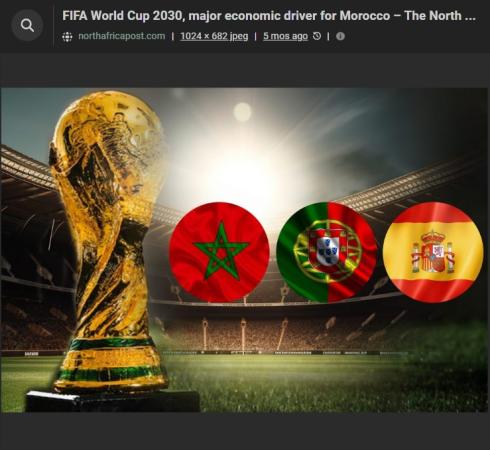2030 World Cup Expected to Accelerate Morocco’s Economic Growth and Global Influence – Real Instituto Elcano
Madrid – The joint organization of the 2030 FIFA World Cup by Morocco, Spain, and Portugal is anticipated to act as a major catalyst for Morocco’s economic development and to further solidify its international diplomatic positioning, according to the Spanish think tank Real Instituto Elcano.
Advancing Morocco’s Soft Power Strategy
In an analysis entitled “World Cup 2030: Grand Entrance of Moroccan Soft Power,” Antonio Navarro Amuedo, a Maghreb and Middle East expert at the institute, argues that Morocco seeks to leverage the tournament as a vehicle to enhance its global image. The objective, he explains, is to portray Morocco as a modern, open, and emerging nation capable of hosting large-scale international events.
Infrastructure Development as an Economic Driver
The report emphasizes the significant economic implications of hosting the World Cup, particularly in terms of infrastructure investment. Morocco has launched a comprehensive program to modernize its road networks, airports, railway systems, and urban infrastructure, which is expected to stimulate economic activity and create long-term benefits for the national economy.
The Grand Stade of Casablanca: A National Landmark
The construction of the Grand Stade of Casablanca is cited as a flagship project symbolizing Morocco’s ambitions. The stadium reflects a renewed national identity—forward-looking, innovative, and strategically positioned to compete on a global stage.
Sport as a Tool of International Influence
The think tank situates Morocco’s World Cup hosting efforts within a broader soft power framework, noting that international sporting events can significantly enhance a country's attractiveness and influence. This mirrors the transformative effect of the 1992 Barcelona Olympics for Spain.
Reflection of Morocco’s Evolving Foreign Policy
Real Instituto Elcano views Morocco’s co-hosting role as a reflection of its recalibrated foreign policy, which has prioritized diversifying diplomatic partnerships beyond traditional European and American allies. The World Cup, in this context, is seen as the culmination of years of strategic positioning and diplomatic advancement.
Regional Reengagement and Strategic Autonomy
The analysis highlights Morocco’s reassertion on the African stage, driven by two overarching priorities: the protection of territorial integrity and the pursuit of greater autonomy in economic, security, and defense matters. These strategic objectives underpin Morocco’s broader efforts to enhance its regional leadership and global standing.

